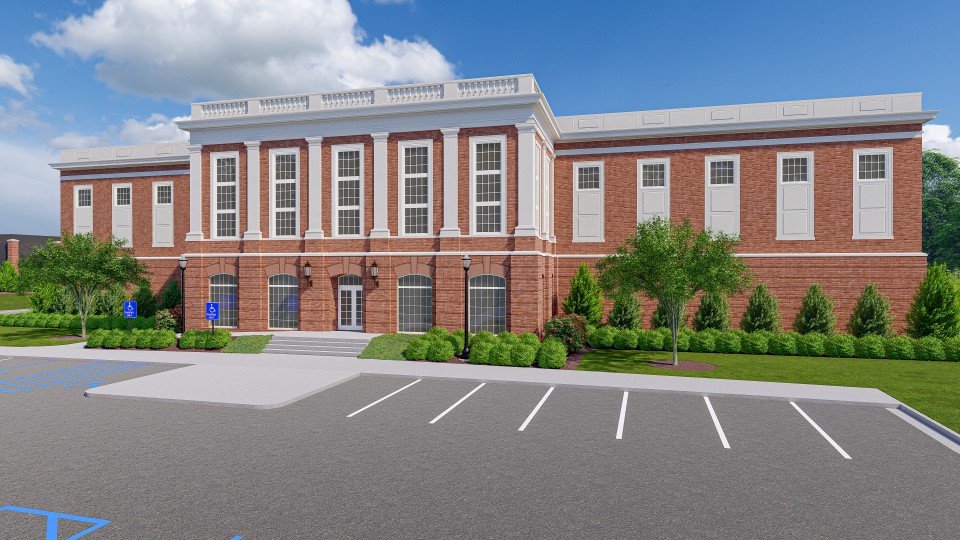The University is set to spend $100 million on a data center that comes as it develops AI-powered advisors, AI tutors for individual classes and dedicated AI servers that could host “BamaGPT” for UA students. The investment, fueled in part by federal grants and state appropriations, is part of an effort to “ensure the University and its students are at the forefront of the AI wave,” the University said in an article posted to UA News.
High-performance computing could also allow the University’s Cyber Institute to grab lucrative federal and military contracts.
The University’s current expansion into the AI world is part of record-breaking investments, which globally totaled almost $1 trillion between 2013 and 2022.
Jiaqi Gong, an adjunct associate professor of mechanical engineering and director of the Center for the Advancement of Artificial Intelligence, said that companies all over the world have been investing in AI so that they aren’t left behind.
“This is the golden age for AI. For the next five to ten years, every industry will ask, ‘Is this possible?’” Gong said.
Gong’s AI center is one of the groups that will take advantage of the University’s upcoming High-Performance Computing and Data Center, although the potential use cases for the technology are numerous. A town hall for the HPC highlighted its potential to transform scientific simulations, drug discovery, risk analysis in finance, quantum computing, translation studies and more.
It was announced at a town hall presentation that “anything requiring a large amount of digital data,” including research done by the government, industry partners and at the University of Alabama at Birmingham and the University of Alabama at Huntsville.
General Project Information documents on the HPC’s Building Bama webpage also cite the new data center’s ability to draw in students and faculty and enhance the University’s ability to engage in federal grants and contracts involving controlled research data and processes.
The HPC’s focuses on cybersecurity, storing data and running AI locally, rather than through the cloud.
Slated to open in late 2026 or 2027, the HPC will boast 125 server cabinets with a max rated power draw of 30mW, increasing the University’s raw computing power by 100x. The data center will also feature office space, conference areas and cooling systems.
“[Alabama Power] had to build its own little substation just for that facility, that’s the potential use case scenario of thousands of homes simultaneously consuming that amount of electricity,” said Matthew Hudnall, a UA associate professor of management and information systems and member of Gov. Kay Ivey’s Generative AI task force.
Hudnall said that the HPC is being developed in close partnership with Alabama Power to facilitate future electricity needs.
He has been working with advanced computing systems for decades and is currently working to position the state of Alabama and the University as pioneers in the AI space. He’s currently part of the charge to expand the University into the AI realm before the HPC is completed.
Along with Mike Shelton, University vice provost and chief information officer, Hudnall is working on an AI tutoring engine and generalized advisory engine for current and prospective students.
“[The University] is currently building out a large AI server right now that’s meant to host large language models to be used internally at UA by researchers and by students,” Hudnall said, describing the project as a BamaGPT.
“We know where our data is being housed and the students can rely that their information is not being sent to any sort of outside entity,” he said.
Hudnall hopes that increased investment in the University’s AI capabilities will enable more students to engage with the technology, opening the doors for breakthrough startups and innovative research.
“There’s already a number of AI startups that exist within the Tuscaloosa area and within the state,” Hudnall said, referencing City Detect, an AI company that uses cameras on municipal vehicles to detect things like illegal dumping and plant disease.
Chris Crawford, an associate professor of computer science at the University said that adding more accessibility to AI in the University could also improve student job prospects. He said that companies are looking to hire UA computer science students, believing business leaders are now “trying to inject AI into their companies.”
Crawford said that computer science students without AI experience might struggle to find jobs in the changing marketplace.
Gong and other professors at the University’s Cyber Institute say they are trying to get more students involved in their work in order to expand research on AI and give students valuable experience.
“We’re also looking for more talented and strong, more innovative students to join us,” Gong said. “We’re going to make legends here.”









